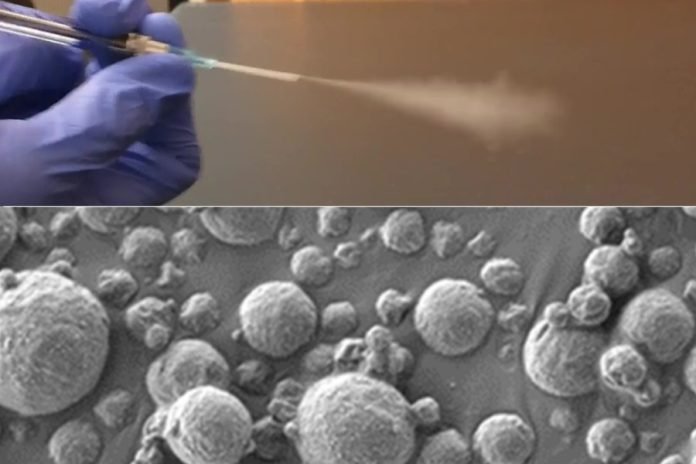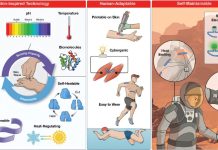
Lung cancer is a major health concern worldwide, and detecting it early is crucial for effective treatment.
Scientists at the Massachusetts Institute of Technology (MIT) have developed a groundbreaking method that might make diagnosing lung cancer as simple as taking a deep breath and then doing a urine test.
This new technique uses tiny particles called nanosensors, which can be inhaled using an inhaler or a nebulizer – devices commonly used for asthma.
These nanosensors are designed to find specific proteins in the lungs that are linked to cancer. When they find these proteins, they send out a signal that ends up in the urine. By using a simple paper test strip, similar to a pregnancy test, doctors can then check the urine to see if these signals are present, indicating lung cancer.
Currently, the best method to diagnose lung cancer is through a CT scan. However, these scans are not available everywhere, especially in countries with limited medical resources. Also, CT scans can sometimes give false alarms, leading to unnecessary tests. The new inhalable sensors could be a game-changer, making lung cancer diagnosis more accessible and less invasive.
The nanosensors are tiny particles coated with a special substance. When they encounter certain enzymes in the lungs, which are more active in cancer, they release a ‘barcode’ made of DNA. This barcode travels through the bloodstream and gets into the urine. The paper test strip can detect up to four different barcodes, each linked to a different enzyme, and the results are available in about 20 minutes.
The research team, led by MIT’s Sangeeta Bhatia, tested this method on mice with lung tumors. They found it could accurately identify early-stage cancer. They are now looking to test this method on human samples and, eventually, in clinical trials. A company called Sunbird Bio is already exploring a similar sensor for liver cancer and a liver condition known as NASH.
This technology could significantly impact lung cancer screening, especially in areas with limited access to advanced medical facilities. It offers a quick and straightforward way to screen for lung cancer, potentially saving many lives by catching the disease early, when it’s more treatable.
The research was supported by various institutions, including the Johnson & Johnson Lung Cancer Initiative and the National Cancer Institute. This innovation promises to be a major step forward in the global fight against lung cancer, bringing hope of early detection to many, especially in lower-income countries.



